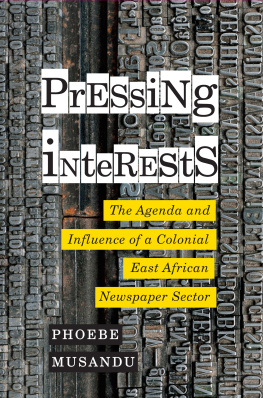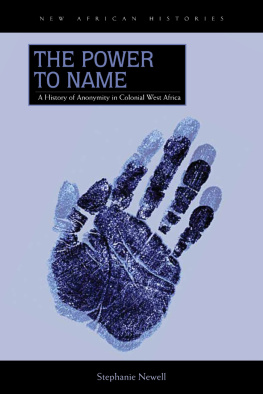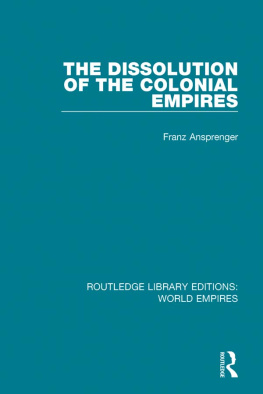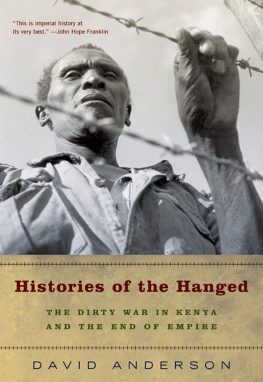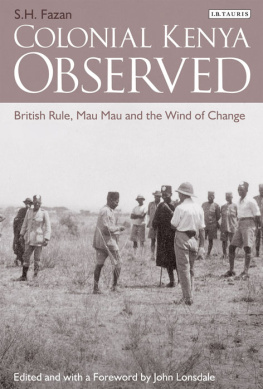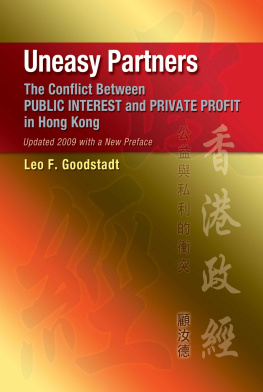
PRESSING INTERESTS
Pressing Interests
The Agenda and Influence of a Colonial
East African Newspaper Sector
PHOEBE MUSANDU
McGill-Queens University Press
Montreal & Kingston London Chicago
McGill-Queens University Press 2018
ISBN 978-0-7735-5457-3 (cloth)
ISBN 978-0-7735-5458-0 (paper)
ISBN 978-0-7735-5600-3 (ePDF)
ISBN 978-0-7735-5601-0 (ePUB)
Legal deposit fourth quarter 2018
Bibliothque nationale du Qubec
Printed in Canada on acid-free paper that is 100% ancient forest free (100% post-consumer recycled), processed chlorine free
This book has been published with the help of a grant from Georgetown University, Qatar.

We acknowledge the support of the Canada Council for the Arts, which last year invested $153 million to bring the arts to Canadians throughout the country. Nous remercions le Conseil des arts du Canada de son soutien. Lan dernier, le Conseil a investi 153 millions de dollars pour mettre de lart dans la vie des Canadiennes et des Canadiens de tout le pays.
Library and Archives Canada Cataloguing in Publication
Musandu, Phoebe, author
Pressing interests : the agenda and influence of a colonial East African newspaper sector / Phoebe Musandu.
Includes bibliographical references and index.
Issued in print and electronic formats.
ISBN 978-0-7735-5457-3 (cloth). ISBN 978-0-7735-5458-0 (paper).
ISBN 978-0-7735-5600-3 (ePDF). ISBN 978-0-7735-5601-0 (ePUB)
1. Newspapers Political aspects Kenya History 20th century.
2. Newspapers Social aspects Kenya History 20th century.
3. Newspapers Economic aspects Kenya History 20th century.
4. Press and politics Kenya History 20th century. 5. Great Britain Colonies Africa History 20th century. I. Title.
PN5499.K46M87 2018 | 079.676209'04 | C2018-903199-9 |
C2018-903200-6 |
This book was typeset by True to Type in 10.5/13 Sabon
To R. Harun
May your wings take you to edifying places
beyond my imagination
Contents
Acknowledgments
It took an intercontinental village to complete the journey that is this book, and I am most grateful to that village. My appreciation to the Department of History at the University of California, Los Angeles, not only for the opportunity to study in its African History Program, where this book started its journey as a dissertation, but also for facilitating the funding of my studies at the institution. My appreciation, too, to the Edwin W. Pauley Foundation, the History Fund, and the Hans Rogger Fund for helping finance my studies in the run-up to the first round of research and writing. As members of my dissertation committee, Edward Alpers, Christopher Ehret, Michael Lofchie, and Sharon Traweek offered a lot of valuable academic experiences that helped me lay the groundwork for this project, and they all played key supporting roles in the course of its development. I went to East Africa on research leave between September 2008 and September 2009, and I am grateful to UCLAs International Studies Institute for the Dissertation Fieldwork Fellowship that funded that year of research. The fellowship also helped finance a brief research visit to London in August 2009. Prior to departing for research leave, I worked as a summer fellow at the Young Research Librarys Center for Primary and Research Training. The fellowship provided valuable training in the processing and use of primary sources, and the funds also helped finance my dissertation research year. A UCLA Graduate Division Dissertation Year fellowship funded my final year in the program, and for this I am also grateful.
I am thankful to the Qatar Foundation and Georgetown University in Qatar for generously funding several research trips between 2014 and 2017 and for meeting publication costs. They also provided an environment that has enabled me to grow as a scholar. At Georgetown University, I came to know Rogaia Abusharaf, Clyde Wilcox, and Judith Gwathmey Wilcox, who all provided much critical technical guidance and moral support throughout the course of my work on this manuscript. Their input and support at all stages of the process has been invaluable, and it is difficult to express the depth of my gratitude to them. I feel very fortunate to have them as mentors. Daniel Stoll and Mohamed Reza Pirbhai made it possible for my UCLA dissertation chair and mentor, Edward Alpers, to visit me in Doha during one of his trips to the region. He read the revised manuscript, and his counsel was foremost in my mind as I conducted additional research for the manuscript. I am grateful for his continued support well past my student years.
The School of Foreign Service in Qatar engaged and financed the services of a writing consultant, Susan Bohandy, for faculty and prioritized junior faculty access to her services. I have benefited majorly from her insightful questions, comments, and numerous suggestions. She read several drafts of my work and offered moral support and guidance with seemingly unflappable patience, for which I am very thankful. Nevertheless, all errors of omission or commission are my own.
At various points in this journey, various people in Georgetown University in Qatar stepped in to help me clear obstacles on the manuscripts path or facilitated its progress in one way or another. I would like to thank Amna Ali, Kai-Henrik Barth, John Crist, Elizabeth Graham, Carina Lawson, James Reardon-Anderson, Shaida Shonde, Jacqulyn Williams, and Valbona Zenku. I am also thankful to those who kept track of this projects twists and turns and offered warm support: Omar Al Swadi, Shelley Ford, Donna Hanson, Thameena Husain, Virginia Jones, Heather Kerst, Sandy Kim, Maryanne Mahin, Deborah McKee, Anne Nebel, Sue Page, Karen Rasch, Keltie Ross, Rana Saad, Kerry Sauer, Christine Schiwietz, Amira Sonbol, Daniel Stoll, and Daniel Westbrook. I would like to offer a special general expression of my appreciation to all present and past members of the universitys Library and Human Resources Departments for their warm support and conviviality maskati. I benefited from the support of the various members of the Mentoring Committee, which Clyde Wilcox has chaired since its formation. I would like to thank him and the other founding members of the committee, Rory Miller, and Daniel Westbrook, for their guidance and encouragement. In my eyes, the work of this committee is a testament to the universitys commitment to the overall development of faculty at the early stages of their careers. Lastly, I would like to express my thanks to my former research-intensive learning students, Nada Abdelhay and Iman Mohamed, as well as the whole community at the School of Foreign Service in Qatar fellow faculty, staff at all levels, and students. In ways too many to list, you buttressed my work, and continue to do so.
Archives were, of course, indispensable to the research component of this work of history. I visited the Kenya National Archives frequently between 2008 and 2015. The staff were always welcoming and helpful and did their best to enhance my research efforts. Id like to extend my appreciation to Peterson Kithuka, Mary Musau, and Philip Omondi. I would especially like to express my gratitude to Richard Ambani, who was ever ready to assist with valuable research pointers and suggestions. I am also grateful to George Magoha and Godfrey Muriuki for facilitating access to University of Nairobis precious holdings of Kenyan Asian newspapers. The two have also been very supportive of me as a historian in training and as an early career scholar. At the universitys library, Everlyn Anambo was of much help, and Grace Kiragu provided guidance and support during several visits, for which I am most grateful. I would like to thank Stewart Gillies for facilitating access to press material at the British Library, Colindale in August 2009. Steven Spencer of the Salvation Army International Heritage Centre, London, helped me contact Robyn Edge of the Salvation Army Heritage Centre, Australia, and enabled me to access rare records on Olive Grey. I am grateful for their assistance. In addition, Hirji Shah of the Desai Foundation, Nairobi, put me in touch with Zarina Patel, who provided whatever guidance she could on both Manilal Desai and Alibhai Jevanjee. My thanks also to Nick Mays of News UK Archives for helping me to access information on George Kinnear. My appreciation to the staff at McMillan Library, Nairobi, as well as the Young Research Library in Los Angeles. I appreciate the research guidance and support as well as the friendship of Ruby Bell-Gam, the Africana bibliographer of the UCLA Library.
Next page
